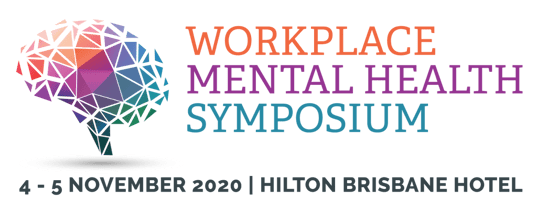Best Manager Actions for Employee Mental Health

This article was kindly contributed by Dr Susanne Bahn, CEO of Tap Into Safety.
Through this COVID-19 pandemic, a question we hear often is "What are the best manager actions we can take to help our employees to maintain good mental health?"
There have been anecdotal reports that 80% of your employees are anxious, and suicide attempts have increased by 5%. They are worried about losing their job, many are isolated working from home, and they are incredibly concerned that they will catch the coronavirus.
In a survey conducted by the Australian Industry Group in April 2020, they found that 31% of employers report that their employees are highly anxious and 38% said their HR and OHS professionals are severely overloaded.
In this article, we investigate the signs of declining mental health and the recommended manager actions to help employees who may be struggling.
What Are the Stress, Anxiety and Depression Signs?
COVID-19 has caused significant anxiety across the globe and has become an issue in our workplaces as mental illness symptoms begin to surface. When employees experience mental health problems, they will likely show changes in their energy levels and behaviour and have difficulties with interpersonal relationships at work and home. You may also notice a decline in their appearance.
The main types of concerns are anxiety, depression, suicidal behaviours, stress, psychosis and substance misuse. The recommended manager actions and the signs to look out for are:
- Stress reduces our quality of life, and stressed workers might perform poorly as well as have relationship problems. They may be irritable, moody, and to be more susceptible to headaches, colds and flu. Giving your team regular stress management tips, such as doing problem-solving activities and learning calming techniques, may help them to cope.
- Anxiety and feeling afraid is a natural response to a threat and can trigger the body's fight or flight response. This causes an increase in your heart rate, sweating and breathing. Feeling anxious is similar to feeling fear, except that anxiety can happen when there's no real danger. Anxious employees may make excessive lists, work longer than others, and often procrastinate. It's a good idea to check in with anxious workers to ensure that they are clear about the tasks they need to achieve. You may also find that offering them some reassurance and positive feedback goes a long way to reduce their anxiety.
- Depression causes a persistent low mood along where people can experience problems with sleep, appetite and energy levels. There may also be interpersonal problems both at home and at work. When workers are depressed, they may feel lonely and isolated, yet they are unable to reach out for help. As a manager or supervisor, it's vital that you encourage employees who are displaying signs of depression to reach out to their doctor or your EAP to discuss treatment options.
See our article, COVID-19: Reduce Your Employee's Anxiety.
How To Recognise Suicidal Thoughts, Psychosis and Substance Misuse

Suicidal thoughts, psychosis and substance misuse, are other mental health issues that managers and supervisors need to watch out for in their employees. They need to provide targeted manager actions to support employees displaying these signs.
- Suicidal thoughts and behaviours are a critical safety issue among our workforce. Excellent manager actions include taking part in training to learn how to respond if an employee is thinking about suicide. As a supervisor or manager, if you suspect that a worker is considering suicide, you must report this to HR and link them to medical care. Don't be afraid to talk about suicide and to act immediately, if you suspect that someone is unsafe.
- Psychosis is an impaired relationship with reality and can be triggered by various life challenges. Understandably this can be a scary and overwhelming experience. Employees who experience psychosis may have delusions (false beliefs) and hallucinations that cause them to see or hear things that no-one else can. They may withdraw socially and have decreased motivation levels. As a manager or supervisor, if you suspect that someone an employee is experiencing signs of psychosis, it is critically important that you report this to HR and assist them in accessing immediate medical support.
- Substance misuse produces both physical and behavioural signs. For example, your employees may have bloodshot eyes, abrupt weight changes, and look unkempt. You may also notice an increase in aggression or irritability, changes in attitude and priorities, and posting different kinds of content on social media. Sometimes employees drink alcohol or abuse medications or drugs because they are trying to cope with difficult thoughts and painful feelings. One of the best manager actions is to remind your team that the EAP offers free counselling where they can learn effective coping strategies.
See our article, Depression Symptoms Rise When You Work Long Hours.
What Are The Best Manager Actions If My Employee Asks For Help?
If your employee approaches you for help with their mental health concerns, you need to know where you can refer them to for support. You should listen to their concerns without judgment and be careful not to try and solve their issues for them.
You may need to direct them to HR. You should also be familiar with the contact details of your organisation's Employee Assistance Program.
If your employee is showing signs of high stress or anxiety, you may need to arrange for them to get home safely or to see their doctor. If you are prepared and pre-plan how to respond when an employee expresses a personal problem, it will be easier for you to deal with if you are approached.
Managing and supervising others can be very rewarding, yet at times it may also be difficult and stressful. For these reasons, you must take care of yourselves and be aware of your own mental health. You should focus on building and maintaining good self-care strategies, such as good quality sleep and nutrition.
It's also important to keep solid supports in your personal life. Attending some professional counselling can also help to protect your mental health. Importantly, having healthy boundaries for yourself will ensure you maintain an appropriate work-life balance while effectively managing others.
See our article, COVID-19 and Mental Health Support.
Online Mental Health Training Can Help
Offering training to teach effective coping strategies builds employee's resilience and is one of the best manager actions you can take. The Tap into Safety online and mobile-friendly platform has comprehensive mental health training with new micro-learning modules to help you manage through COVID-19 and the recovery.
- Helping Employees with Mental Health Concerns
- Working from Home
- Managing Your Employees
- Signs of Declining Mental Health in Employees
Why not try a free trial or contact us for more information?
To Conclude
COVID-19 is impacting our mental health, and it is often difficult to know the most appropriate manager actions you can take. Right now with many managers working from home, managing from a distance increases the challenges of offering the best support. When employees experience mental health problems, they will likely show changes in their energy levels and behaviour and have difficulties with interpersonal relationships at work and home. You may also notice a decline in their appearance.
The main types of mental health concerns are anxiety, depression, suicidal behaviours, stress, psychosis and substance misuse. If your employee approaches you for help with their mental health concerns, you need to know where you can refer them to for support. You may need to direct them to HR, your EAP, arrange for them to get home safely, or see a doctor.
Training that teaches coping strategies is one of the best manager actions you can take, and you must look after your mental health with good self-care, healthy boundaries and an appropriate work-life balance.




